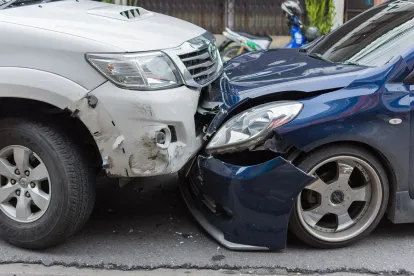Any car accident is a high-stress, overwhelming experience for those involved. But sometimes it is impossible to avoid an accident. As an average U.S. adult, you are likely to be in three to four car accidents during your lifetime, regardless of whether the crash is your fault or not. So, it’s a good idea to know exactly what steps to take in the aftermath.
Talking to your insurance company is a part of this process. The idea sounds intimidating to many, while others assume that a car crash automatically leads to higher monthly premiums and extra costs for repairs. Whether that is true or not depends very much on the facts surrounding each individual accident. Asking certain questions of your insurance company after the crash will give you a clearer picture of what to expect moving forward.
WHY SHOULD I TALK TO MY INSURANCE COMPANY?
Most car insurance agreements require you to tell the insurance company when you have been in an accident, regardless of who is at fault. Failure to do so could result in issues with your coverage for that crash. If the other person involved in the accident sues you, this sudden lack of coverage would leave you to pay any damages out of your own pocket.
Below are a few of the most important things to discuss with your car insurance provider. Keep in mind that before you do this, you will have ideally filed a police report, taken photos of the accident scene, gathered witness statements and other pieces of evidence, and, importantly, gotten the other driver’s information. You will need all of this when you speak with your insurance company.
Once armed with that information, proceed with the following questions:
WHAT DOES MY INSURANCE COVER?
That depends on the type of insurance plan you bought. Illinois law requires all motor vehicles registered in the state to be covered by liability damage. Liability is the portion of your insurance that says if you are at fault in an accident and get sued, your insurance company will cover a certain amount (determined by your contract). In general, you want to have as much liability coverage as you can.
Collision insurance covers damages to your own car if you get into an accident. Illinois state law does not require you to have this, but it is a good idea to get it.
IF I’M INJURED, WHAT SHOULD I DO WITH MY BILLS?
Your Medical Payments Coverage, also just called MedPay, helps to pay for either you or your passengers if any of you are injured in an auto crash. Once that sum is exhausted, you pay the rest out of pocket.
For example, if you have a MedPay provision of $5,000 and your medical bills from the accident total $3,000, MedPay will cover the full expense. On the other hand, if MedPay covers $5,000 and your bills total $6,000, the remaining $1,000 difference comes out of your own pocket.
WHAT SHOULD I REPORT?
One of the reasons it is so important to gather photos, notes, and witness statements after an accident is that your insurance company will need all of this information. They will want to know the date and time of the crash, as well as things like road conditions, weather, and any surrounding events that were happening, such as unusually heavy traffic.
Importantly, you will also want to provide the other driver’s information, including their name, address, phone number, license plate number, and insurance information.
SHOULD I TALK TO THE OTHER PERSON’S INSURANCE COMPANY?
Avoid any talk with the other driver’s insurance company, and never sign any document they send you or agree to any kind of settlement. The general rule of thumb is that you should communicate strictly with your own insurance company and let your attorney talk to the other driver’s carrier.
Determining fault in a car accident can be a tricky business sometimes, and if you believe in any way that the other person caused the accident, it is best to discuss your case with an experienced car accident attorney. In Illinois, you have two years to file a claim for damages. However, sooner is better when it comes to taking that step.


 />i
/>i

